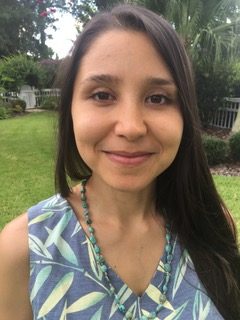| Image | Name and Profile | Curriculum Vitae |
|---|---|---|
 | Unna YaredDegrees Earned:
Dissertation Title: “Being Arab is an Act of Resistance”: How Arab American Women Generate Agency over Their Identity in Unsettled Times Abstract: Though classified by the United States census as white, Arab Americans are often racialized as non-white through political events, religious practices, and other everyday experiences that may contribute to a sense of contested identity. Arab American women are uniquely situated at the intersection of race, religion, and gender, navigating how those perceived identities impact the evaluation of their bodies in a US racial landscape and how they respond to that perception in creative ways that exercise agency; as well, women are often regarded as the forerunners of cultural resilience, positioning Arab American women in salient standpoints. Feminist standpoint epistemologies help scholars conceptualize the role of racialization and cultural expression, especially in unsettled times. A focus on women offers a vantage point for understanding how long-standing inequalities grounded in intersecting oppressions encourage agency expressed as group solidarity via coalition building with organizations as well as through intergenerational cultural transmission – for example, sharing family possessions and stories. I engaged in several months of fieldwork at an Arab cultural center in Atlanta, Georgia, and 32 interviews with Arab American women. Using Constructivist Grounded Theory analysis, I find that an unsettled political context heightened after October 7th, 2023, racializes Arab American women in increasingly negative ways that impact their perceptions of identity and expression of Arab culture. Basing generative processes on these experiences, Arab American women's agency related to changing how the group is racialized is expressed in three major ways: (1) resisting social change, (2) reinforcing social change, and (3) revolutionizing social change. These findings provide a timely, essential perspective on how Arab American women respond to US racial landscapes in unsettled times with varying standpoints confronting that racial identity. | CV (PDF) |
 | Julia ArroyoDegrees Earned:
Research and Teaching Interests: Dissertation Title: Raising grandchildren: Navigating paths, mitigating costs, and managing presence. Abstract: At any given time, about 2% of children in the United States reside in a household with grandparents and no coresiding biological parents, commonly labeled as grandparents raising grandchildren (Dunifon, Ziol‐Guest, and Kopko, 2014). Evidence shows that most households in which grandparents raise grandchildren come about through a transition in household membership (i.e., a parent, child, or grandchild enters or exits a household), and that further household transitions beyond the initial one are common (Pilkauskas & Dunifon, 2015). In other words, grandparents don’t often have primary care responsibilities for their grandchildren at their birth, and they don’t always retain primary care responsibilities upon assuming them. Yet, little research asks how grandparents raising grandchildren care arrangements come about or how they dissolve once they do. Given the relevance of these care pathways for caregiver and child well-being, I set out to address this gap. To do so, I gathered two types of data. For several months, I observed interactions among grandparents and practitioners at organizations which provide services and supports to current and prospective relative caregivers (predominantly grandparents). In addition, I interviewed 20 grandmothers who were raising or who had raised grandchildren in Central Florida. Using interpretive analytic techniques, I find that the evolution and dissolution of grandparents raising grandchildren care arrangements is driven by grandmothers’ negotiations in their formal and informal networks. Further, grandchildren’s biological parents hold symbolic and, in most cases, legal power, making them key stakeholders in care negotiations. As such, grandmothers’ ability to negotiate parental authority with grandchildren’s parents and parent-facing systems largely sets the tempo of care transitions. Given this, entrances into raising grandchildren can be more or less extended and exits can be prompted despite grandmothers’ perceptions that this is not in grandchildren’s best interest. In some cases, grandmothers negotiate cooperatively with grandchildren’s parents and provide temporary care while parents manage adversities or fulfill conflicting responsibilities. In other cases, grandmothers slide into primary care without explicit negotiations, only coming to realize they are raising grandchildren after they have been doing so for quite some time. In many cases, grandmothers enter into primary care over an extended period during which they come to perceive grandchildren to be at risk of harm while in parents’ care, but are unsuccessful in negotiating with grandchildren’s parents to assume care. On this pathway, many grandmothers attempt to activate a child protective system response, but find that the system’s child safety standards and care strategies are misaligned with their own. Across pathways, when grandmothers’ fail to acquire or maintain parental authority through informal or formal negotiations, care entrances are tenuous and care arrangements remain open to undesired churning and dissolution. Despite feeling considerable strain, many grandmothers develop strategies to protect grandchildren’s well-being in the context of extended entrances, repeated care transitions, and abrupt dissolutions. These findings provide an in-depth portrait of grandmothers’ diverse pathways into and out of raising grandchildren and point to a need to move beyond using household membership status to proxy the accomplishment of family care and understand its impacts. Future research should examine the impact of care pathways on individual and family well-being in the context of grandparents raising grandchildren. | CV (PDF) |